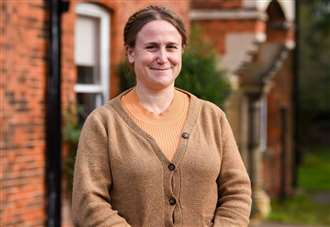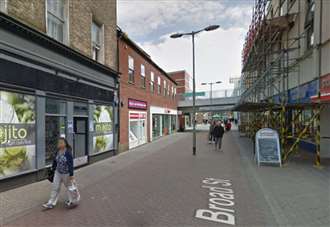-
 play_arrow
play_arrow
Kl 1 Radio Local radio for west Norfolk
-
 play_arrow
play_arrow
KL DISCO KL Disco Playing Disco Music from the 70's onwards.24/7
-
 play_arrow
play_arrow
KL COUNTRY KL COUNTRY Playing New and Classic Country Music 24/7
-
 play_arrow
play_arrow
KL ROX KL ROX The best of New and Classic Rock.24/7
-
 play_arrow
play_arrow
KL SUMMER Summer Vibes 24/7 from KL1 Radio across West Norfolk
-
 play_arrow
play_arrow
KL CLASSICAL Your Symphony Starts Here
-
 play_arrow
play_arrow
KL CHILL Just Chill!
-
 play_arrow
play_arrow
KL POP The Best POP Hits all day Long!
-
 play_arrow
play_arrow
KL XTRA KL XTRA
music_note

In our weekly Thought For The Week column, Lucy McKitterick discusses links between homelessness and crime…Last week our Government opened a debate on Assisted Dying. The MP for North West Norfolk, James Wild, shared his thoughts on the subject in last week’s Lynn News, and understandably on any issue where the welfare of our loved ones is involved, people will have strong, and different, convictions on what is right and what is very wrong. We can be thankful we live in a country where all our elected representatives are given a free vote on such issues, so that at least even if we disagree we know that they have had a chance to decide what is right for themselves.A national opinion survey meanwhile, carried out by the research team at Theos, has discovered that 10% of their respondents supported assisted dying for people suffering from extreme poverty, and 9% for people experiencing homelessness. I found myself wondering if the 10% who took this view were the people waiting in a queue outside the Foodbank, or if the 9% were themselves sleeping on our streets.
The same week I spent a morning at the magistrates’ court in Lynn. Over the last few years, the waiting area of the court has become fairly familiar, with visits from time to time on behalf of the Night Shelter to support guests either as victims or defendants. Sitting around waiting for everyone to be seen isn’t easy and I’m often struck by the tact and courtesy people who have very little will show to others when they are in trouble – empathy, sometimes, comes from knowing how it feels.And yet – I look around that waiting area, and I see familiar faces. The court pages in this newspaper from week to week almost always contain names we know. And we might ask, why do homelessness, and poverty, go together with the kinds of crimes which bring people back to magistrates courts – sometimes, as can happen when people lead very chaotic and difficult lives, without being very sure why they are there.Jesus met a man once begging by the roadside. He was blind, and his name was Bartimaeus. He shouted for Jesus, and the people around them told him to shut up. Jesus came over, and said to him: “What do you want me to do for you?” and he said to Jesus: “I want to see”. Perhaps the people who responded to that survey on assisted dying thought poverty, and homelessness, were so awful that people should be able to end their lives to opt out – if they did, I wonder what they would make of the fact that already 1,400 people died while homeless in the UK last year without an Assisted Dying Bill, or that the Night Shelter lost 12 former guests in the same period, people we have known and valued here. Or perhaps those 10% or 9% knew what poverty and homelessness felt like, and responded in empathy, knowing also the feeling of life being no longer worth living.What we can know, is that we cannot look at a Foodbank queue, or a night shelter, or a court waiting room, and tell the people we meet there to shut up. Because if we don’t go over, and say “What do you want me to do for you?” then they will never know that we value them enough to be able to answer us: “I want to see”.
Similar posts
-

Upcoming shows

Night Trax
12:00 am - 7:00 am

Paul Baker – KL1 Breakfast
7:00 am - 10:00 am

Chris Fisher – KL1 Mornings
10:00 am - 1:00 pm

Ian Campfield – KL1 Afternoons
1:00 pm - 4:00 pm

Richard Dix – KL1 Drive
4:00 pm - 7:00 pm
Message Us
Copyright The Mediasite UK - 2025







